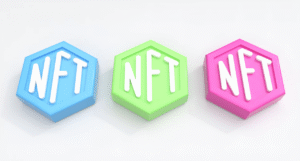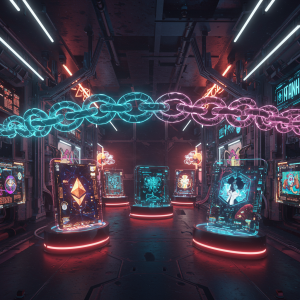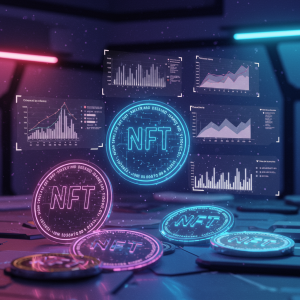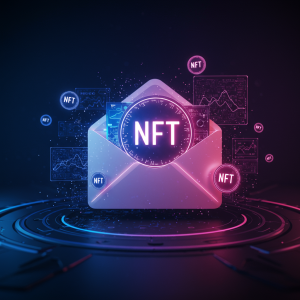Mind Over Matter: The Psychology of NFT Collecting and Digital Ownership

In a world increasingly defined by our digital presence, the explosion of NFT collecting represents more than merely a technological revolution—it marks a fundamental shift in how we conceptualize ownership itself. The phenomenon raises fascinating questions about why intangible assets, often simple JPEG files, command prices that would make traditional art collectors blush. To understand this paradox, we must delve into the psychological underpinnings that drive our attachment to digital possessions.
The Evolution of Ownership in Digital Spaces
Human beings have collected physical objects since prehistoric times. From ancient pottery and medallions to baseball cards and vinyl records, the urge to accumulate, categorize, and display prized possessions spans cultures and eras. This tendency reflects deeply rooted psychological needs—for security, identity formation, social signaling, and the creation of personal meaning.
Digital ownership, however, introduces complexities that challenge our traditional understanding. Without physical form, what exactly do we possess when we “own” a digital asset? The answer lies not in materiality but in the concept of provable scarcity and authentic connection to creators. NFTs achieve this through blockchain verification, creating artificial but verifiable uniqueness in an environment where perfect digital copies had previously erased distinctions between original and duplicate.
“We’re witnessing the translation of age-old psychological drivers into virtual spaces,” explains Dr. Elena Ramirez, cognitive psychologist at the Digital Behavior Research Institute. “The same neural pathways that activate when we acquire physical possessions light up when we secure digital assets that feel exclusively ours.”
Identity Construction Through Digital Collections
Perhaps the most powerful psychological factor in NFT collecting involves identity expression. In an increasingly virtual world, our digital possessions have become crucial extensions of self. Profile picture collections like CryptoPunks and Bored Ape Yacht Club don’t simply represent financial investments—they function as avatars and tribal markers in online spaces.
The psychology at play mirrors how we’ve always used material possessions to signal values, affiliations, and status. The Ferrari parked in a driveway and the rare NFT displayed as a Twitter avatar satisfy similar psychological needs for distinctiveness. Both communicate success, taste, and group membership. The difference lies in accessibility and visibility—digital assets can be instantaneously displayed to global audiences in ways physical objects cannot.
This identity construction extends beyond mere status. Collectors often develop emotional attachments to their digital assets, viewing them as expressions of personal taste and aesthetic judgment. The careful curation of an NFT collection becomes an act of self-definition, communicating who we are—or aspire to be—to ourselves and others.
Community and Belonging in Digital Collecting
Humans possess an innate need for social connection, and NFT communities have emerged as powerful vehicles for belonging. Owning tokens from specific collections often grants access to exclusive Discord servers, events, and social circles. These communities satisfy our tribal instincts, offering connection around shared interests and values.
The psychology of belonging explains why many collectors remain deeply invested even during market downturns. Beyond potential financial returns, these communities provide friendship, intellectual stimulation, and shared language. For many, especially during periods of physical isolation like the COVID-19 pandemic, these digital tribes became primary social outlets.
Learn more about building engaged NFT communities on our homepage, where we explore strategies for cultivating meaningful connections among collectors.
Scarcity and the Psychology of Desire
Human psychology responds powerfully to scarcity. When something exists in limited quantities, we instinctively attribute higher value to it. This principle, well-documented by behavioral economists, operates just as effectively in digital realms as physical ones, perhaps even more intensely.
NFTs leverage this psychological trigger through provably limited editions and one-of-one creations. The knowledge that only you—and no one else—can truly claim ownership of a particular digital asset creates cognitive value disconnected from the asset’s practical utility. This explains why the screenshot argument (“I can just right-click and save the image”) misses the psychological reality of NFT ownership.
Dr. Michael Fenton from the Behavioral Economics Foundation notes: “What critics fail to understand is that exclusive ownership rights fulfill deep psychological needs that viewing alone cannot satisfy. The difference resembles that between admiring someone else’s vacation photos versus experiencing the vacation yourself.”
Risk, Reward, and Cognitive Biases
The speculative aspect of NFT markets activates reward pathways in our brains similar to those triggered by gambling. The unpredictability of returns—whether a collection will skyrocket in value or plummet to near-worthlessness—creates dopamine releases that can become psychologically addictive.
Several cognitive biases influence collector behavior in these volatile markets. Confirmation bias leads investors to focus on success stories while discounting failures. Fear of missing out (FOMO) drives impulsive purchasing decisions when collections gain momentum. Endowment effect causes collectors to overvalue assets simply because they own them.
These psychological mechanisms explain both the irrational exuberance of bull markets and the difficulty many collectors face when considering selling at a loss. Recognizing these biases doesn’t necessarily neutralize them but can help collectors make more deliberate decisions.
Meaning-Making Through Digital Artifacts
At the deepest level, NFT collecting reflects humanity’s perpetual search for meaning. Throughout history, we’ve imbued objects with significance beyond their material properties—religious relics, family heirlooms, autographed memorabilia. These items matter not for what they are physically but for the stories and connections they represent.
Digital collecting continues this tradition. Owning an early NFT from an artist who later achieved fame creates a meaningful connection to cultural history. Possessing tokens associated with transformative personal experiences—a concert, game achievement, or significant life event—creates emotional resonance beyond monetary value.
This meaning-making extends to supporting creators directly. Many collectors describe satisfaction in knowing their purchases financially sustain artists they admire. The direct connection between creator and collector, unmediated by galleries or streaming platforms, generates authentic relationships that transcend transactional exchanges.
The Future Evolution of Digital Psychology
As NFT technology matures, psychological responses to digital ownership will likely evolve in tandem. We’re already witnessing shifts from pure speculation toward utility-focused collecting, where tokens provide tangible benefits beyond bragging rights. This transition suggests a maturing psychological relationship with digital possessions.
The integration of physical and digital experiences—through augmented reality displays, metaverse environments, and physical/digital hybrid collectibles—will further complicate our psychological responses. As the boundaries between virtual and material reality continue blurring, our concepts of ownership must adapt accordingly.
Ultimately, understanding the psychology behind NFT collecting provides insights not just into current market behaviors but into humanity’s ongoing adaptation to increasingly digital existence. The apparent paradox of paying substantial sums for intangible assets becomes comprehensible when viewed through psychological lenses of identity, community, scarcity, and meaning-making.
Far from representing an irrational bubble or passing fad, NFT collecting reveals profound truths about what we value and why—even when those values migrate from physical objects to digital realms. As we construct ever more of our lives in virtual spaces, the psychology of digital ownership will only grow more central to understanding human behavior in the twenty-first century.








